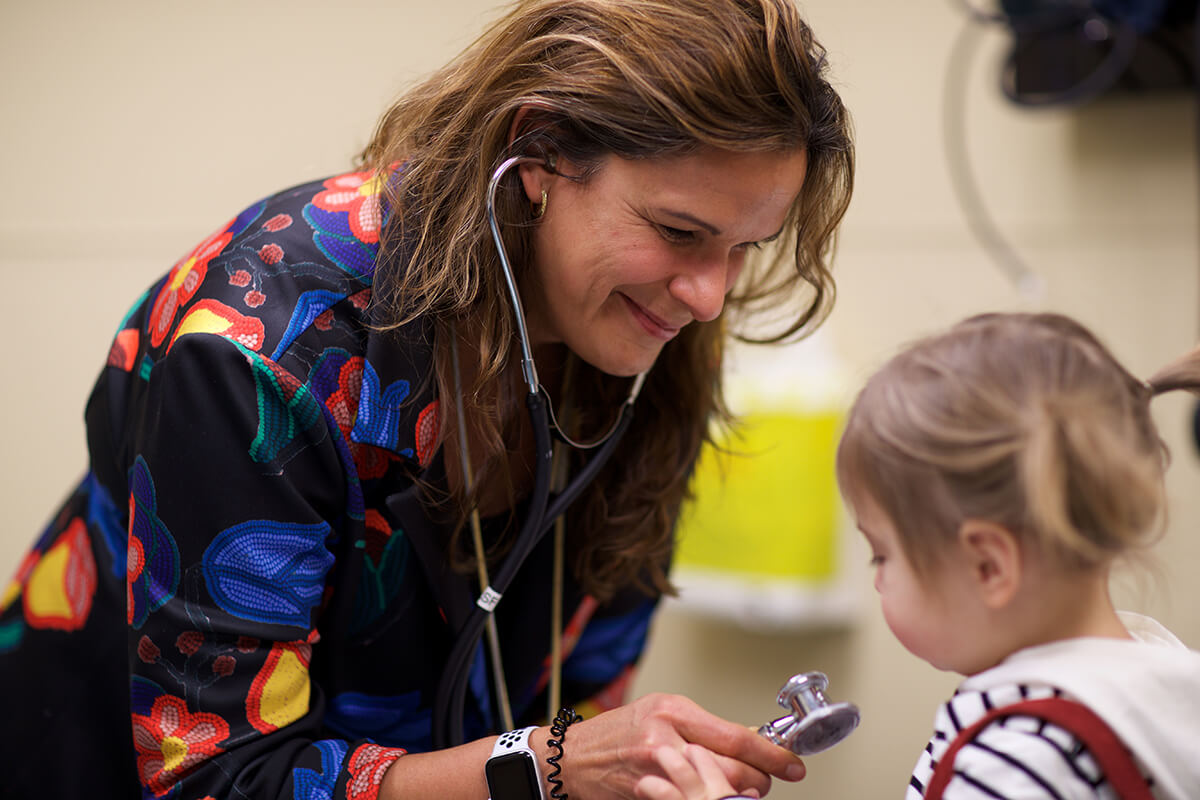
Setting a new standard for health care in MB: ‘Auntie Style’
A new report proposes an innovative standard of care to address the escalating primary care crisis in Manitoba.
Attendees at the Roundtable for Indigenous Youth, a part of the national OurCare survey, are calling for health services delivered “Auntie Style.”
Throughout the Roundtable, participants were clear that in their interactions with health-care professionals, they want to feel both cared for and respected. In this context, “Auntie Style” means that systems and workers are rooted in the concept of kinship and can provide culturally safe care.
“We walk into a hospital and expect to be discriminated against,” was a typical experience echoed again and again throughout the Roundtable session, with youth expressing a deep mistrust of the mainstream health-care system. Indigenous youth also reported often delaying seeking medical care until it becomes an emergency.
Findings from the Indigenous Youth Report show a need for more Indigenous staff across the health-care system, additional Indigenous-led care and spaces, and accountability. This includes holding all staff accountable for the way they treat patients, especially Indigenous people, so that all patients are treated with dignity in hospital and other medical settings.
The Roundtable was one component of OurCare’s national initiative. Over 16 months, OurCare heard from nearly 10,000 Canadians about their experiences and aspirations for a better primary care system. Collectively, Manitobans contributed about 1,318 hours to OurCare.
Ten community roundtables, including two held in Winnipeg, received in-depth feedback from 192 participants from underserved communities including First Nation, Inuit and Métis people; African, Caribbean and Black communities; immigrants, refugees, migrant workers and other newcomers; LGBTQIA+ migrants; and people with disabilities.
Input from participants at all stages of the project was distilled into the OurCare Standard, six elements of what every person in Canada should expect from the primary care system:
- Everyone has a relationship with a primary care clinician who works with other health professionals in a publicly funded team.
- Everyone receives ongoing care from their primary care team and can access them in a timely way.
- Everyone’s primary care team is connected to community and social services that together support their physical, mental and social well-being.
- Everyone can access their health record online and share it with their clinicians.
- Everyone receives culturally safe care that meets their needs from clinicians that represent the diversity of the communities they serve.
- Everyone is served by a primary care system that is accountable to the communities it serves.
“The national OurCare Standard provides a straightforward and easy to understand guide for what people should be able to expect from the primary care system and what policymakers and decision makers should work towards when making changes to the primary care system,” said Dr. Amanda Condon, OurCare Manitoba co-lead and head of family medicine at the Max Rady College of Medicine, University of Manitoba, and Shared Health provincial specialty lead of family medicine. “Primary care that meets the OurCare Standard is primary care that meets the needs identified in the Indigenous youth community roundtable convened in Manitoba.”
“I feel that it is very important that each of us do our part to ensure that health care meets the needs of all of our citizens in Canada,” said Marti Ford, a panel member with Inuit and settler roots. Ford is also an assistant professor of education at the University of Manitoba. “Complaining about a system doesn’t solve anything, we need to give our time to find a solution. We are all impacted by the health-care system and it needs to be healed in order to continue the work that the health-care professionals are striving for in a broken system.”
The OurCare report and the Manitoban Indigenous Youth Report are available on the OurCare website.






